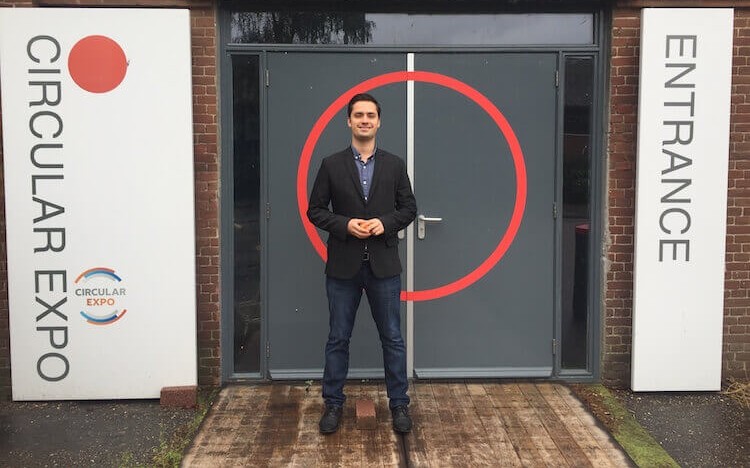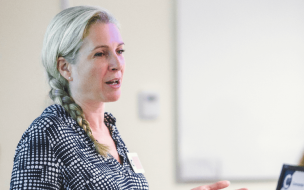His goal was to meet the company’s 20% carbon emission reduction target.
Liaising with Heineken’s global office in the Netherlands, he led improvements, replacing fossil fuel trucks with bio-fuel trucks, changing the mode of transportation for exporting beer, and suggesting alternative driving techniques to save fuel.
While many professionals use MBAs and master’s degrees to switch jobs, Ricardo wanted to gain more skills and knowledge around sustainability and corporate social responsibility (CSR) and bring that back to his employer.
“Heineken wasn’t an expert on sustainability,” he explains. “They were very oriented towards that, but without the right skills, so I found that I needed to develop if I really wanted a career in sustainability.”
Ricardo spoke with Heineken Mexico’s CEO, who allowed him to take a year out and agreed to partially sponsor his degree.
Ricardo’s choice of program was at a school over 5,000 miles away: the Management and Corporate Sustainability MSc at Cranfield School of Management in the UK.
Sustainability at business school
Cranfield has twice won Queen’s Anniversary Prizes for its strength in sustainability.
Once in 2015, for its research on sanitation in developing countries, which included developing a system that converts human waste to clean water. Then, in 2017, when Cranfield created large-scale soil and environmental datasets to help inform decisions about the sustainability of natural resources.
Cranfield also has its own solar farm, which produces 5% of the campus’ electricity and also acts as a research facility for students attending energy courses.
Divided into twelve modules, Cranfield’s Management and Corporate Sustainability MSc includes teaching on accounting and finance, strategic management, and sustainability in practice.
It teaches professionals the practicalities of how businesses can successfully embed sustainability into their core purpose and strategy. Some modules also include consultancy-type challenges, where professionals respond to a project brief set by a real organization.
Ricardo focused his degree thesis on a resolving Heineken Mexico’s problem of shifting towards renewable energy in transportation. He then applied the project on a model scale for the company.
“To have that combination of management and corporate sustainability helps professionals take into consideration a very practical side of businesses,” says Ricardo.
“That really helps when you’re trying to implement something in organizations or even in cities, because the policymakers are the equivalent of the managers in an organization.”
“I became a stronger professional”
Once Ricardo completed his master’s and returned to Heineken Mexico, he implemented a four-year strategy for a transition to circular economy in all the different pillars of the company’s framework.
Instead of solely concentrating on CO2 emissions, Heineken Mexico began focusing on business models and practices to accomplish economic prosperity, environmental quality, and social equity.
As a result, Mexico became the first operating country within the Heineken world to make that transition. The global office in the Netherlands then took this approach onboard and began replicating it with other countries around the world.
“I became a stronger professional,” says Ricardo. “The master’s helped me differentiate myself from other professionals within the company and in Mexico.”
Ricardo is now applying his skills in a new role as an independent circular economy business developer with a Dutch company called ECOR. “The masters made me more active, more socially responsible towards my country and the society that we live in,” he says.
Why sustainability is important
In 2017, a major research report found that just 100 companies worldwide are responsible for over 70% of global carbon emissions.
Senior lecturer Dr Rosina Watson, who leads the corporate sustainability specialist module on the Cranfield master’s program, says society increasingly expects businesses, and business professionals, to respond to environmental and social challenges.
“Businesses sustainability strategies are critical in order to increase trust, mitigate risk, reduce cost and drive growth,” she explains. “It’s not about ‘doing the right thing,’ but ensuring the survival of a business into the longer term.
“For businesses that get in front and work out how to respond quickly and meaningfully and learn how to compete in this changing world, there is massive opportunity.”







